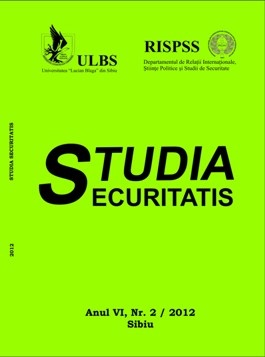TRATATUL PENTRU STABILITATEA, COORDONAREA ŞI GUVERNANŢA ÎN CADRUL UNIUNII ECONOMICE ŞI MONETARE (TRATATUL FISCAL AL UNIUNII EUROPENE) CA SOLUŢIE LA CR
THE TREATY ON STABILITY, COORDINATION AND GOVERNANCE IN THE EUROPEAN UNION (THE FISCAL COMPACT) AS A SOLUTION TO THE FINANCIAL CRISIS
Author(s): Cristina Iuliana Angelescu, Mariana Radu, Codruţ Florian MateiSubject(s): Politics / Political Sciences
Published by: Editura Universitatii LUCIAN BLAGA din Sibiu
Keywords: Treaty; crisis; euro; debt; discipline.
Summary/Abstract: In the ‘50s some European countries did the first step towards an economic cooperation that was supposed to bring them stability and prosperity. Their approaches led to the creation of the Economic and Monetary Union in the early 90’s. Nowadays, the economic and financial crisis strikes it, therefore, there have been taken emergency measures. As a solution to this situation, 25 member states of European Union (among them Romania as well) signed the Treaty on Stability, Coordination and Governance on the 2nd of March 2012. Also known as the Fiscal Compact, it establishes, especially for the countries in the euro area, a "balanced budget rule" and an automatic mechanism to take corrective action. It also stipulates that the states which don’t submit this rule will be fined. This way, the treaty aims to strengthen fiscal discipline in order to reestablish the economic and financial stability and to prevent future European sovereign debt crisis. Moreover, it talks about the governance of the euro area, meaning that it also moves forward to the complete economic integration stage. However, it is important to see if the rules contained by the treaty are complied and if its goal is reached. We ought to take a look to Romanian’s situation, too!
Journal: Studia Securitatis
- Issue Year: 2012
- Issue No: 2
- Page Range: 196-207
- Page Count: 12
- Language: Romanian
- Content File-PDF

